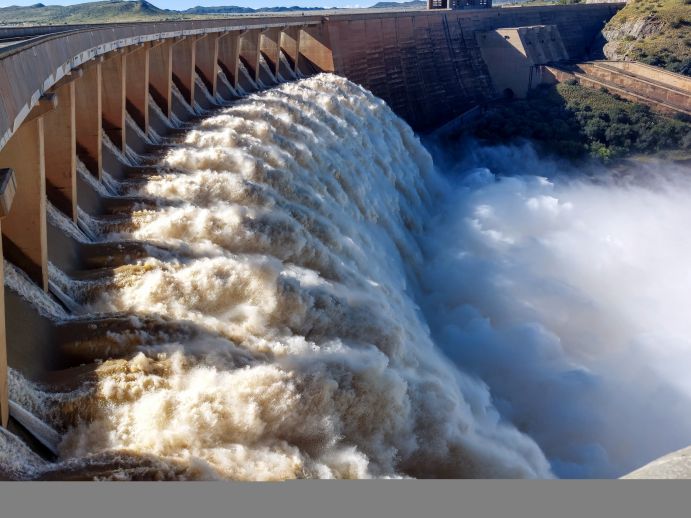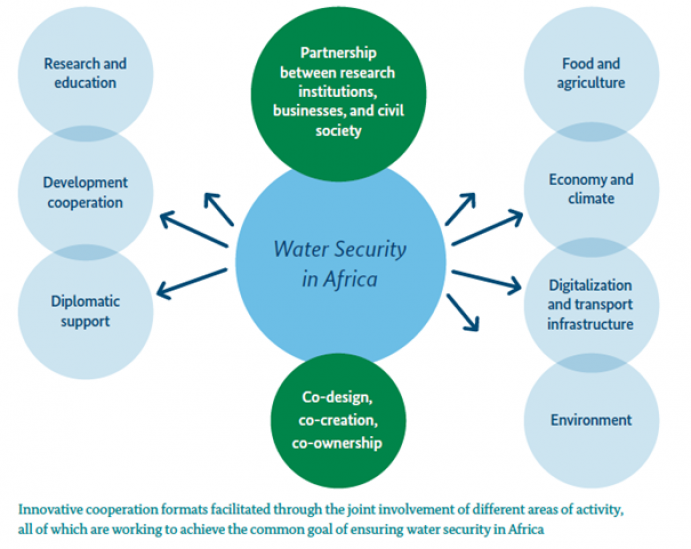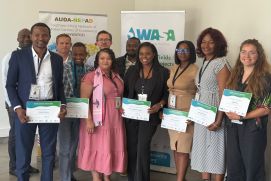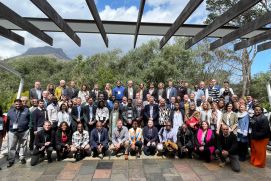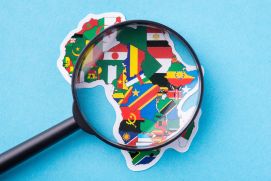Water Security in Africa (WASA)
Compared to other regions of the world, the population of sub-Saharan Africa currently has by far the lowest level of access to safely managed water supplies. Innovative water technologies, adapted water infrastructure and forward-looking management concepts are urgently needed to improve water supply and wastewater management. As a result of the German Federal Government's Round Table "Creating Perspectives in Africa", the "Water Security in Africa (WASA)" program was launched. In May 2024, the four-year research projects of the WASA main phase have started.
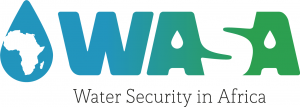
The WASA program was developed in a joint consultation process with African and German experts from science and practice, including the African Ministers' Council on Water (AMCOW) and the water ministries of Angola, Botswana, Namibia, Zambia and South Africa.
On the German side, the program was launched under the lead of the Federal Ministry of Education and Research (BMBF), with the participation of six other federal ministries and their subordinate institutions. WASA is part of the BMBF strategy "Research for Sustainability - FONA".
The WASA program supports the Africa Strategy of the BMBF, which includes increased cooperation with African partners in tackling global challenges. Contributions to the UN Sustainable Development Goals (SDGs) are a key element of WASA. The program also complements the national strategies of the participating countries in southern Africa and is supported by the relevant ministries. For example, the Water Research Commission in South Africa has earmarked corresponding funding. Participating countries in the WASA main phase are Angola, Botswana, Namibia, Zambia, South Africa and Tanzania.
The focus of the WASA main phase is on research and development, capacity building, demonstration and innovation activities. The aim is to develop new processes, products and services.
A total of seven research and development projects were selected for the WASA main phase. The kick-off conference for the WASA program took place in Stellenbosch, South Africa, from September 25 to 27, 2024. Around 100 members of the program gathered for an internal exchange with participating ministries and stakeholders. The conference proceedings with an overview of the cooperation projects and the WASA programme are available for download.
Thematic Field 1: Sustainable Water Resources Management
- SeeKaquA: Semi-Airborne Electromagnetic Exploration of Kalahari’s Aquifers, Africa
Contact: Dr. Raphael Rochlitz, Leibniz Institute for Applied Geophysics (LIAG) & James Sauramba, SADC Groundwater Management Institute - WaMiSAR: Sustainable and Climate Adapted Water Management in Mining in the Southern African Region
Contact: Prof. Dr. Stefan Norra, University of Potsdam, Dr. Martin Schneider, Desert Research Foundation of Namibia & Charl Harding, Impact Catalyst
Thematic Field 2: Water Infrastructure and Water Technology
- MAMDIWAS: Making Mining-Influenced Water a Driver for Change to Improve Water Security in South Africa
Contact: Prof. Dr.-Ing. Stefan Panglisch, University of Duisburg-Essen & Prof. Dr. Richard Moutloali, University of South Africa - NEU-Water: Nature Engineered Urban Design for Water Recycling and Reuse
Contact: Prof. Dr. Wolfgang Dickhaut, HafenCity University Hamburg & Assoc. Prof. Kevin Winter, University of Cape Town - WaReNam: Multi-Scale Water Reuse Strategy for Namibia: Technology, Governance and Capacity Development
Contact: Dr.-Ing. Martin Zimmermann, Institute for Social-Ecological Research (ISOE) & Maria Amakali, Ministry of Agriculture, Water and Land Reform (MAWLR)
Thematic Field 3: Hydrological Forecasts and Management of Hydrological Extremes
- Co-HYDIM-SA: Co-Design of a Hydrometeorological Information System for Sustainable Water Resources Management in Southern Africa
Contact: Prof. Dr. Andreas Fink, Karlsruhe Institute of Technology & Prof. Dr. Gizaw Mengistu Tsidu, Botswana University of Science and Technology - WaRisCo: Water Risks and Resilience in Urban-Rural Areas in Southern Africa – Co-Production of Hydro-Climate Services for an Adaptive and Sustainable Disaster Risk Management
Contact: Dr. Sophie Biskop, Friedrich Schiller University Jena & Prof. Dr. Francois Alwyn Engelbrecht, University of the Witwatersrand
The WASA program started with an initial phase in southern Africa covering the period 2021-2023. The content and topics of the 13 initial phase projects can be found here. Below is an overview of the final reports.
Final Reports of WASA Initial Phase Projects
- Co-HYDIM-SA (Co-design of a Hydro-Meteorological Information System for Sustainable Water Resources Management in Southern Africa)
- CoSMOS (Development of a Community-Based Sustainable Water Management and Observation System)
- ECWASA (Innovative Water Infrastructure Management to Increase Water Security for Civilians, Economy & Agriculture in Southern Africa)
- FIUWA (Frugal Innovation and Entrepreneurship in Water 4.0 in Africa)
- KreATiw (Climate Resilience, Sanitation and Water Safety)
- MAMDIWAS (Membrane-Based Decentralized Reclamation of Acid Mine Drainage for Improvement of Water Security and Mitigation of Environmental Impacts in Southern Africa)
- MiWaSec (Mining and Water security: Development and Implementation of Innovative Strategies for the Prevention and Remediation of Mining-Related Damage to Critical Water Resources in Southern Africa)
- MultiReWas (Multifunctional Strategies for Resilient Water Security in the Eastern Erongo Region)
- NEU Water (Nature Engineered Urban Design for Water Recycling & Reuse); NEU Water Annex 1
- OWASA (Open Science to Support Local Water Security in Southern Africa)
- SusTraL (Sustainable Resource Management to Ensure Water Security in the Limpopo River Basin: An Initiative for a Transboundary Hydro-Economic Model)
- WaMiNa (Sustainable and Climate Adapted Water Management in Mining Industry of Namibia and Neighbouring Countries)
- WaReNam (Multi-Scale Water Reuse Strategy for Namibia)
In addition, the BMBF-funded TWAS-DFG Cooperation Visits Programme currently supports short-term (up to 3 months) interdisciplinary exchanges of African researchers to Germany. For further information, please refer to the program website.
News about the measure
Last updated on




